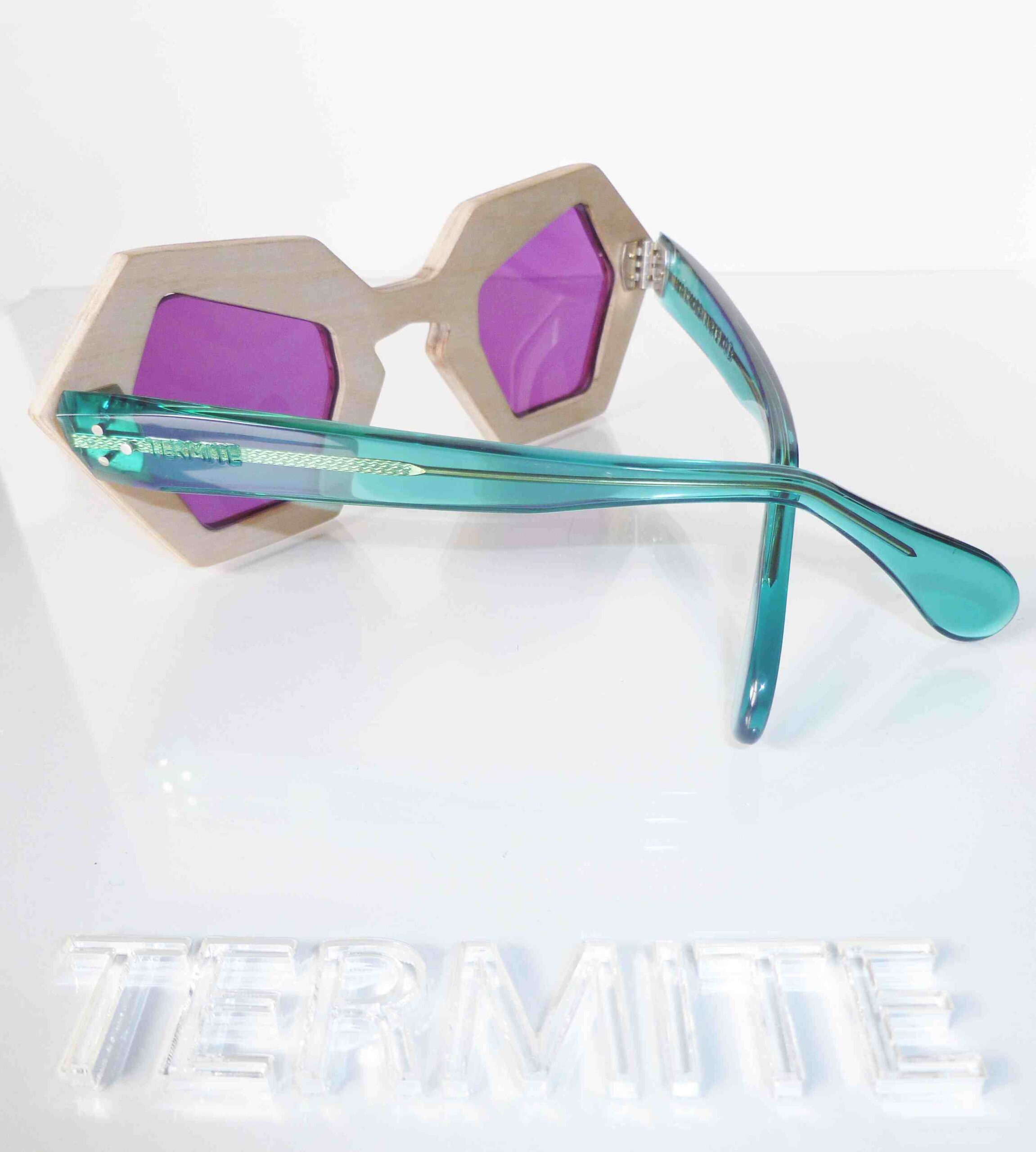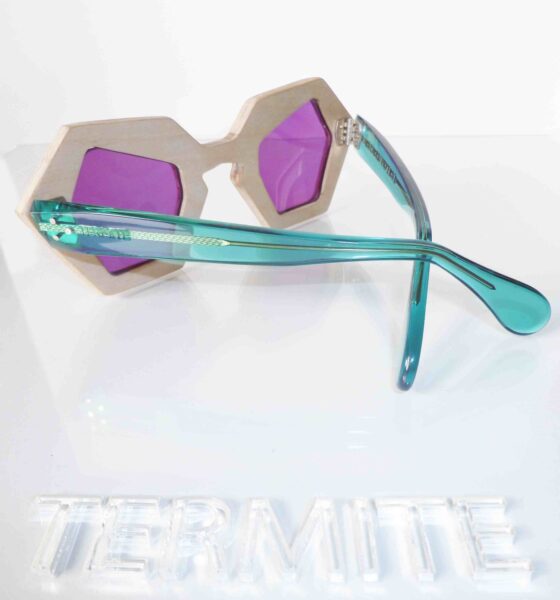

Features
London Fashion Week: innovation in style and substance
London Fashion Week has been and gone for another season, leaving in its wake the usual discussions of politics, good taste and whether runway styles can ever be replicated on the high street.
The Estethica initiative, however, once again put a line through any question marks concerning whether sustainability and ethics can cut it next to mainstream materials and supply chains when it comes to style. The Estethica designers more than held their own with competing collections, demonstrating an enviable range of innovation, imagination and understanding of sustainable design.
As with London Fashion Week AW14 in February, Estethica SS15 spread itself throughout the Designer Showrooms crowding Somerset House – and even onto the catwalk thanks to Christopher Raeburn – with designers announcing their sustainability credentials via a subtle Estethica tag. Among the brands was Termite Eyewear, its latest collection Palm Peach inspired by photography from 1970s Miami. The pieces, made to order in England, are made from sustainable birch plywood and beach-bright acetate offcuts rescued from years spent forgotten at a glasses factory.
Also in the Accessories rooms was milliner Mich Dulce, showcasing her collaboration with bag brand Zacharias alongside her statement headwear. The feminine headpieces utilise abacá fibre and are the product of the hand-weaving and craft skills of women in the Philippines. Nearby was the classic Panama hat label Pachacuti, the work of 200 female weavers in Ecuador, with Plant Hunters the theme for SS15. A certified Fair Trade brand, the hats featured sustainable touches including recycled glass beads and decorative bows coloured with vegetable dyes. Social enterprise Bottletop returned to the Bags showroom with a more pared-down look for a number of its pieces, using the natural metal of the drinks can ring pulls – upcycled by female artisans in Brazil – that form the basis of its designs.
Meanwhile in Ready-to-Wear, Eden Diodati’s luxury eveningwear and jewellery is produced by social cooperatives in Italy and Rwanda, made up of painterly printed silks, modern feminine silhouettes and glamorous embellishments. Christopher Raeburn’s celebrated sports luxe pieces started life as military parachutes before being ‘intelligently reconstructed’ in England, proving that catwalk styles can have less than elegant beginnings.
Similarly, Auria’s fun bingo-themed swimwear line had nothing to suggest its provenance as recycled fishing nets from the Philippines. The UK-made collection also features lining discarded by a larger swimwear brand, bagging more eco-credentials. Lingerie brand Charini, showcasing its batik and nature-inspired designs, has many values to its name: the use of reclaimed fabrics from carbon accredited factories, silks from small businesses in Sri Lanka and handmade trims from traditional craft communities, while rejecting plastics, elastic, underwiring and harmful dyes.
However, as with AW14, this season the real buzz was in the Estethica Emerging Talents room. The space is an opportunity for designers to present their first or second collection, and saw the return of Flavia la Rocca, Louise de Testa and Katie Jones following their LFW debut in February. Flavia la Rocca’s new collection continues her theme of recycled fabrics and modular fashion – zips and buttons join or divide garments, designed in modern shapes and wearable colours, for a flexible wardrobe – while Louise de Testa has developed her innovative zero-waste designs and offcut marquetry for her 1930s tennis-inspired sportswear collection.
Katie Jones showed that knitwear can work perfectly for the spring/summer season with metallics and ice-cream colours inspired by childhood trips to Brighton Pavilion with her grandmother – her own crochet work providing inspiration through the classic patterns that comprise Jones’s pieces. Jones uses surplus and reclaimed materials and spins her yarn in England. Also proving that knits are not just for winter was Estethica newcomer Wool and the Gang, showing light sweaters and hats created by a community of knitters – the ‘Gang’ itself – and a bright bag made from upcycled T-shirt jersey fabric. Unusually, Wool and the Gang also encourages its customers to knit their own clothes if they prefer, supplying the yarn and patterns.
In addition to the collections on show at Somerset House, Ecoluxe London held its biannual London Fashion Week event down the road, bringing together designers and brands with an even greater variety of ethical and ecological concepts. Community craft initiatives, upcycled clothing, new natural fabrics and handmade skills were all attendance. It was recycling, however, that caught the eye and the imagination: cement bags (Craftworks Cambodia), postage stamps (The Duck and The Sesame), saris (My Wild Heart), umbrella fabric (Supported by Rain), feathers (Bailey Tomlin) and even food waste (Hoyan Ip/Bio-Trimmings) were all reworked into wearable styles.
Ethical fashion may still need the backing of initiatives like Estethica and Ecoluxe London at present, but with such an abundance of ideas against a backdrop of diminishing natural resources and increasing consumer demand for transparency from brands, the niche is edging into the mainstream.
Morwenna Kearns is a freelance writer, online editor and PR and social media manager for businesses and organisations running the sustainability and ethical gamut, from fashion to food to filmmaking. She also works within the visual communications sector. Morwenna can be found tweeting as @morwennakearns, blogging about ethical fashion and beauty at GreenGlitter.co.uk and editing environmental business news at SustainableReview.net.
Photo: Termite Eyewear
Further reading:
Altering the pattern: Organic Fashion and Textiles Week
London Fashion Week: ‘fashion and sustainable fashion can be one and the same’
Sustainable fashion: an oxymoron?
Greenpeace study finds toxic chemicals in children’s clothes































